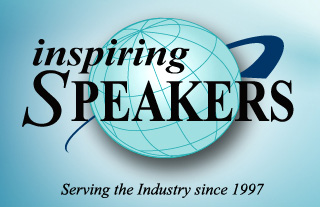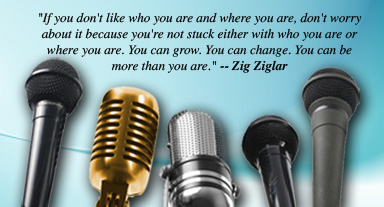In today’s world of news feeds, sound bytes and 140-character-or-less Twitter updates, time is of the essence.
Today’s audiences are impatient. They want information, they want entertainment and they want it now. Brevity has never been more valued – and more important.
So what does this mean for public speaking? It means you have less time than ever to get your audience’s attention, and less time than ever to keep it.
Here are some tips to help you be brief:
- Know how long you’re meant to be speaking for. If you’ve been asked to speak for 30 minutes, plan your speech so that it takes only 25. Not only will your audience appreciate your brevity, you’ll have more time to answer any questions they might have.
- Never talk longer than your allotted time. It’s disrespectful to the audience and even more so to the event organizers. Plus, there’s nothing more distracting – or annoying! – than watching people check their watches for the time while you’re trying to focus on your speech.
- Be articulate. Don’t waste words. Thomas Jefferson, author of the Declaration of Independence, once said: “The most valuable of all talents is that of never using two words when one will do.”
- Simplify your ideas and simplify your language. My Grade 8 English teacher, Mr. Ray, often reminded his students of the acronym KISS: “Keep It Simple, Stupid.” Impressive words are of no use to you if your audience won’t understand what they mean. Remember novelist C.S. Lewis’s advice about writing: “Always prefer the plain direct word to the long vague one. Don’t implement promises, but keep them… Don’t use words too big for the subject. Don’t say infinitely when you mean very; otherwise you’ll have no word left when you want to talk about something really infinite.”
- Speak steadily and at a reasonable pace. Speaking quickly will not shorten your speech. Rather you’ll be more likely to stumble over your words and lose your train of thought. So take your time and pace yourself.
Still not convinced that less is more? Look no further than one of the most famous speeches in America’s history: President Abraham Lincoln’s “Gettysburg Address.”
Abraham Lincoln. “Nicolay Copy” of the Gettysburg Address, 1863. Holograph manuscript. Manuscript Division, Library of Congress Digital ID# al0186p1
At just 10 sentences and under 300 words, Lincoln’s address is one of the shortest, yet most powerful, speeches of all time. (Click here for the transcription.) And to think it was delivered seven score and eight years ago!
For more tips and tricks on how to keep your speeches short and simple, check out Patricia Fripp’s teleseminar recording “Create Clear, Concise and Creative Keynotes: Make Every Word Count” in our Speaker Resource Centre (scroll down – it’s the ninth seminar on the page).
And when in doubt, just remember Mr. Ray and keep it simple, stupid!


